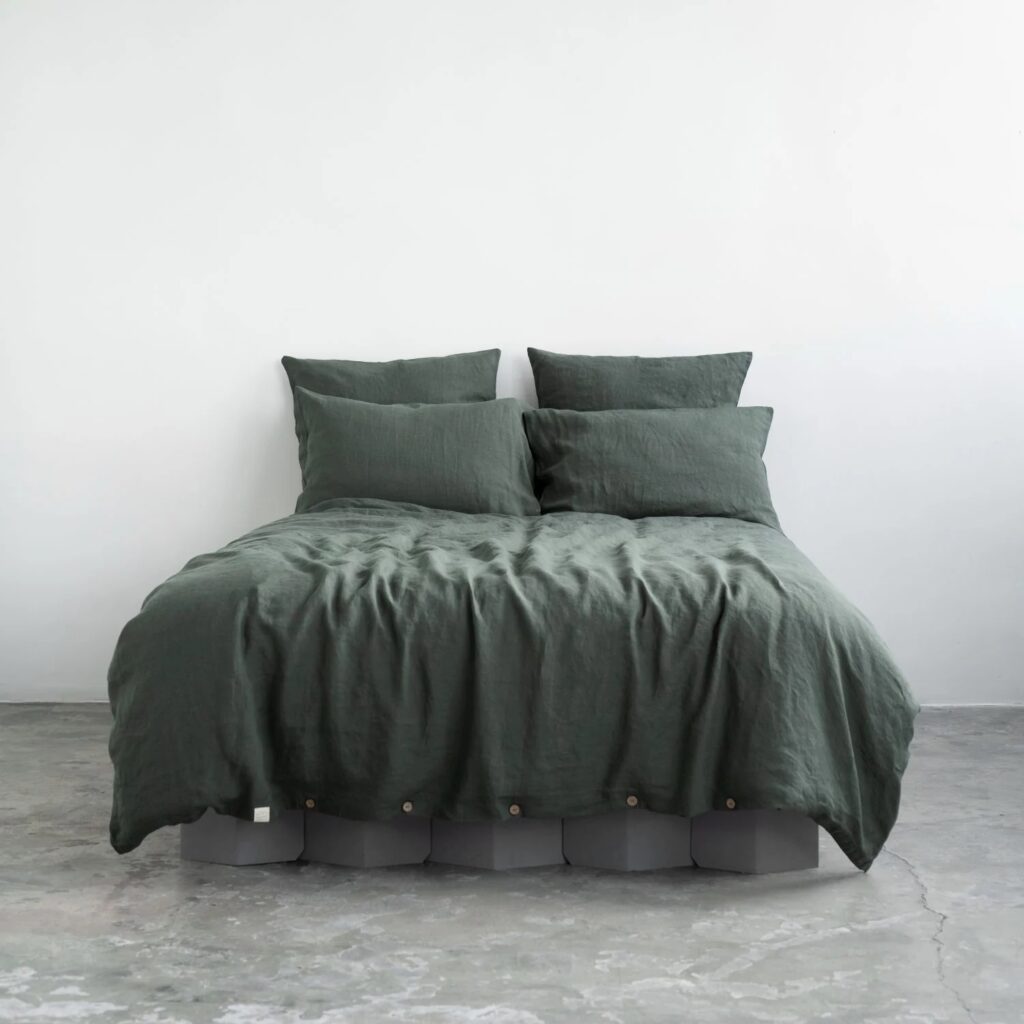Linen duvet covers have gained popularity for their aesthetic appeal, breathability, and sustainability. One of the most compelling reasons why linen is considered eco-friendly lies in the fabric’s natural origin and the sustainable agricultural practices used in its production.
Sustainable Crop
Linen is made from the fibers of the flax plant, which is highly sustainable. Flax requires minimal water compared to cotton and other common textile plants, making it a more environmentally responsible choice. Flax can often be rain-fed and thrives in cooler climates, further reducing the need for artificial irrigation systems. Additionally, flax is resilient and grows well without the heavy use of chemical fertilizers or pesticides. This minimizes the environmental impact during cultivation, preserves soil quality, and reduces the risk of water contamination from runoff.
Low Energy Production
The process of turning flax into linen is also energy-efficient compared to other fabrics. Flax fibers can be extracted through a process known as retting, which relies on natural microorganisms and moisture to break down the plant’s woody parts.

This process does not require synthetic chemicals or high energy consumption, reducing the carbon footprint associated with linen production. Moreover, linen processing tends to generate less waste, as all parts of the flax plant can be used in various industries, including linseed oil or paper production.
Durability and Longevity
Linen’s durability further contributes to its eco-friendliness. Linen duvet covers are incredibly strong and can last for decades with proper care, unlike synthetic fabrics, which wear out more quickly. This durability reduces the frequency of replacing bedding, which in turn lowers the environmental costs associated with textile waste and repeated manufacturing. Additionally, as linen ages, it softens rather than degrades, making it more comfortable over time.
Biodegradability
Another critical aspect of linen’s eco-friendly nature is its biodegradability. Being made from natural fibers, linen decomposes much more quickly than synthetic materials such as polyester, which can take hundreds of years to break down.

Once a linen duvet cover reaches the end of its life cycle, it can safely return to the earth without contributing to long-term pollution or landfill waste.
Ethical Production
Many linen producers also prioritize ethical and sustainable practices, from fair labor conditions to environmentally conscious manufacturing processes. This adds to the eco-friendly appeal, ensuring that the entire life cycle of the product aligns with sustainability principles.
In conclusion, linen duvet covers are considered eco-friendly due to the sustainable nature of flax cultivation, the low energy input required for processing, the material’s longevity, and its biodegradable properties. These qualities make linen a responsible choice for consumers who seek environmentally conscious bedding options.
